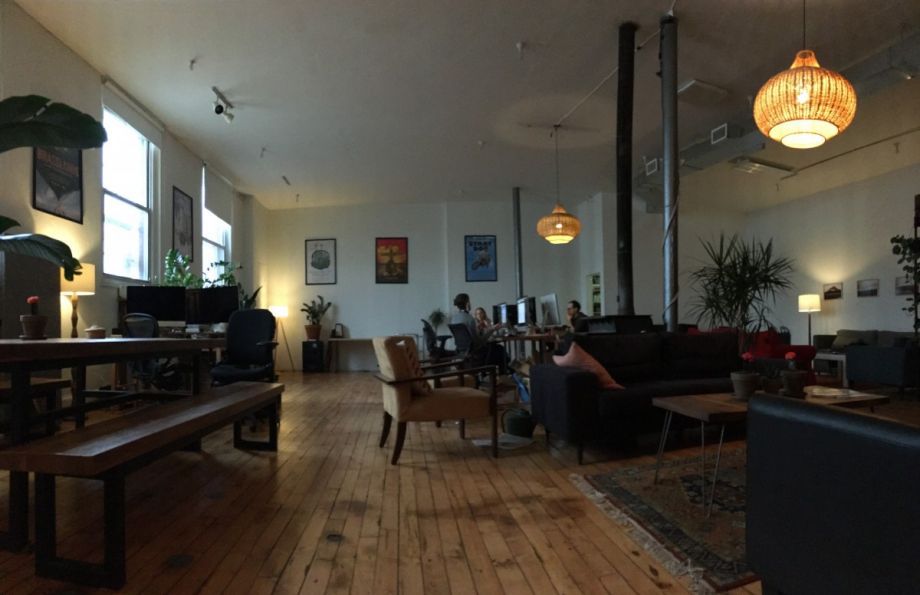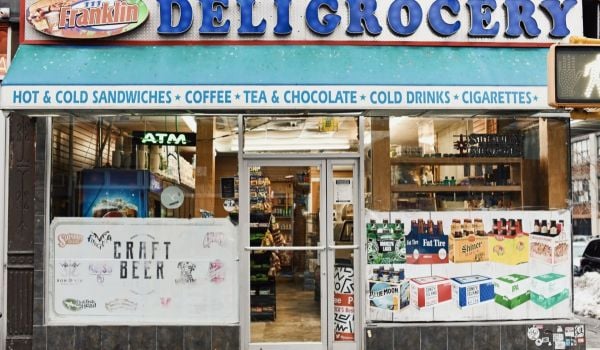When New York City Council earmarked $1.2 million for a Worker Cooperative Business Development Initiative in 2014, Chris Michael, founding director of the NYC Network of Worker Cooperatives said, “We are talking about creating an economy in New York City that protects and preserves jobs and a democratic economy that sees making sure people have jobs as one of its goals. [Workers’ cooperatives] provide the members with dignity, better working conditions, more flexible working hours, and higher wages.”
After a successful 2015 start, funds increased to $2.1 million in 2016, and there’s another $2.2 million for 2017. Now there’s evidence that the investment is supporting the growth of a worker cooperative ecosystem that could create better-paying jobs and bring more Americans into the world of entrepreneurship and give them control over their working life.
The city just released a report on the second year of the initiative. In fiscal year 2016, it supported 27 worker cooperatives to launch their businesses, supported business development services to a total of 49 worker cooperatives (totaling 280 worker-owners), and saw 164 new hires at worker-owned firms that received support from the city (not all hires are full worker-owners). The city also reports that it supported outreach to 2,164 entrepreneurs interested in converting existing businesses into worker cooperatives. All of those numbers are higher than in last year’s report.
The city delivers services to worker cooperatives through a network of 13 nonprofit partners, along with CUNY Law School’s Community & Economic Development Clinic. The metrics in the report were determined though a collaborative process with the partners. It’s a nod to the worker cooperative model, says Emily Miles, director of policy advocacy and research at the Federation of Protestant Welfare Agencies (FPWA), which coordinates a coalition of groups advocating for NYC Council support to build a worker cooperative ecosystem.
“What really drew us was the broad communities that benefit from this model,” Miles says. “So many people benefit from this type of model, its inherent nature, cooperative ownership, sharing of profit, flexible scheduling, these are aspects of the model that benefit a variety of communities.”
While there isn’t much data on who worker-owners are (the first national Worker Co-op Census is just underway), many of the worker cooperatives that the city has supported consist of immigrant women of color, working in industries that have long exploited them as cheap labor. Apple Eco-Cleaning in Queens, founded by five Latina women in 2010, received assistance this past year in producing internal manuals, market research, bookkeeping and strategic planning. Cooperative Home Care Associates, in the Bronx, is the country’s largest worker cooperative, with over 2,000 worker-owners, and it received support this past year for corporate governance consultation and business plan development.
The movement has also reached beyond the city. With support from NYC’s initiative, the Center for Family Life, based in Brooklyn, provides courses for people who want to support worker cooperative development in their own communities. Staff from the Ironbound Community Corporation in Newark, New Jersey, participated in that course in 2015, and in 2016 they helped a group of around a dozen mostly immigrant women launch the Green Magic Cleaning Cooperative.
Overall, the city provided support this past year to worker cooperatives in cleaning, healthcare, construction, grocery stores, childcare, education, packaging and labeling, accounting, landscaping, catering, software development, marketing, commercial screen printing, human resources consulting, security and patrol, sporting and athletic goods manufacturing, appliance recycling and manufacturing, extermination, graphic design, pet care, and transportation.
The coalition led by FPWA sees potential for more funding. For one, there’s more interest in converting existing small businesses into worker cooperatives than they’re currently able to meet, according to Miles.
“Conversion is a very time-intensive process, and as more and more people are interested in that, there’s only so much time our partners have, currently,” she says. “As communities change, we’re losing small businesses in communities, many owners are looking to retire. Switching or converting to worker-cooperatives keeps those businesses and jobs in communities.”
For example, the initiative helped 12-year-old arts collective and production company Meerkat Media to formalize what was already a collaborative working arrangement. The film industry is notoriously cutthroat, but Meerkat members wanted to create a fairer business model.
“The film industry is very much built on the exploitation of free and underpaid labor,” says Zara Serabian-Arthur, a producer-director-editor with Meerkat. (The Brooklyn co-op often produces shorter films for nonprofits, including Next City.)
NYC’s decision to put some resources into building a worker-cooperative ecosystem put Meerkat in a position to grow. “It really was through access to the city resources that got us to a point where now, for the first time ever in our history as a business, we’re doing an open call and are in the process of hiring two more worker-owners,” says Jay Arthur Sterrenberg, another Meerkat worker-owner.
Access to capital for worker cooperatives remains a sticking point. The Working World, a partner in NYC’s initiative, is focusing on it. Worker cooperatives have credit needs just like any other small business, for renovations or investing in new machinery, or even just making payroll. Through the NYC Department of Small Business Services, which houses the worker cooperative initiative, the city already has a range of initiatives geared toward connecting small businesses with lenders. But small business loan officers at banks and credit unions still aren’t comfortable lending to worker cooperatives when they don’t know much about them.
“Even though worker cooperatives have been around for many, many years, it’s still a model that many people aren’t familiar with,” says Miles. “We’re looking at doing additional outreach to those entities who don’t know what this model is. We want worker co-ops to become part of the ecosystem, to normalize it among small business lending.”
The Equity Factor is made possible with the support of the Surdna Foundation.

Oscar is Next City's senior economic justice correspondent. He previously served as Next City’s editor from 2018-2019, and was a Next City Equitable Cities Fellow from 2015-2016. Since 2011, Oscar has covered community development finance, community banking, impact investing, economic development, housing and more for media outlets such as Shelterforce, B Magazine, Impact Alpha and Fast Company.
Follow Oscar .(JavaScript must be enabled to view this email address)

















